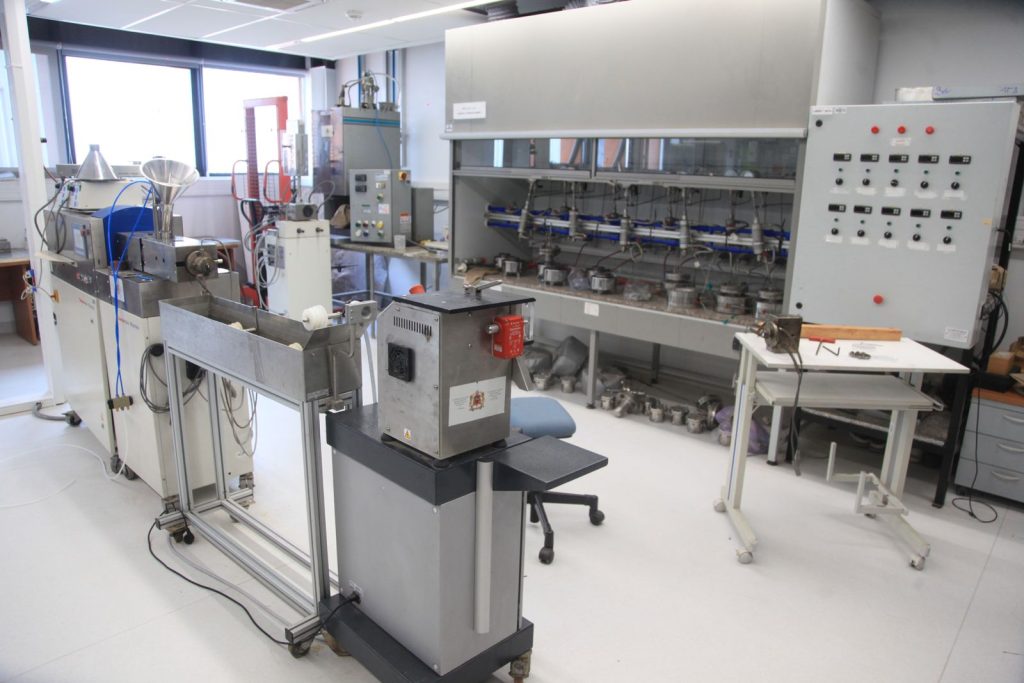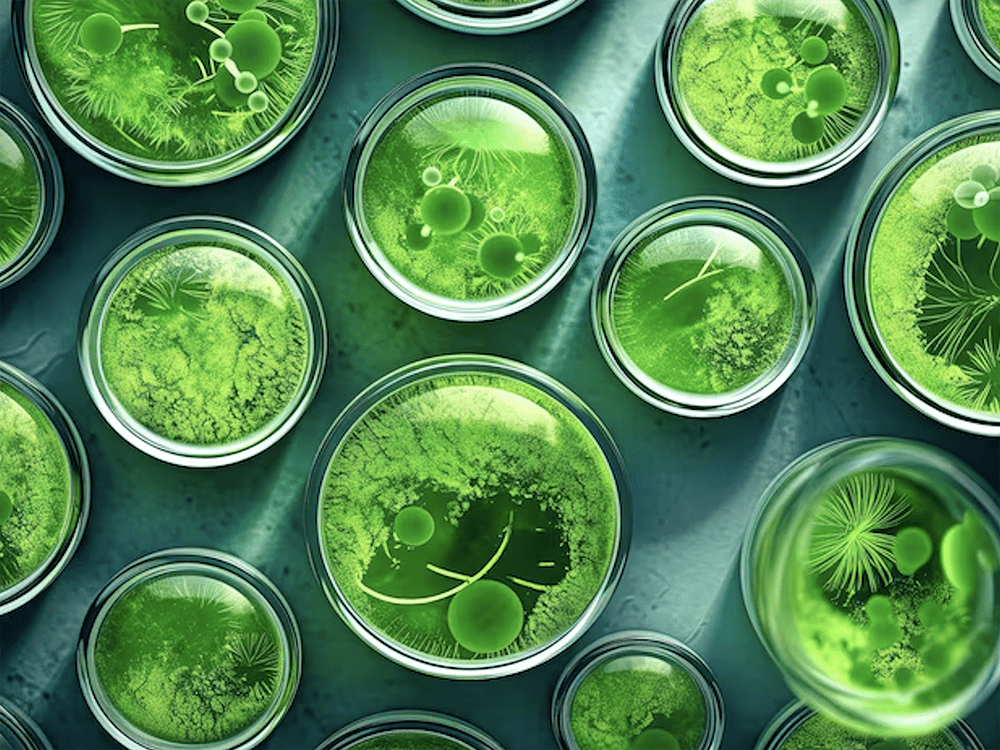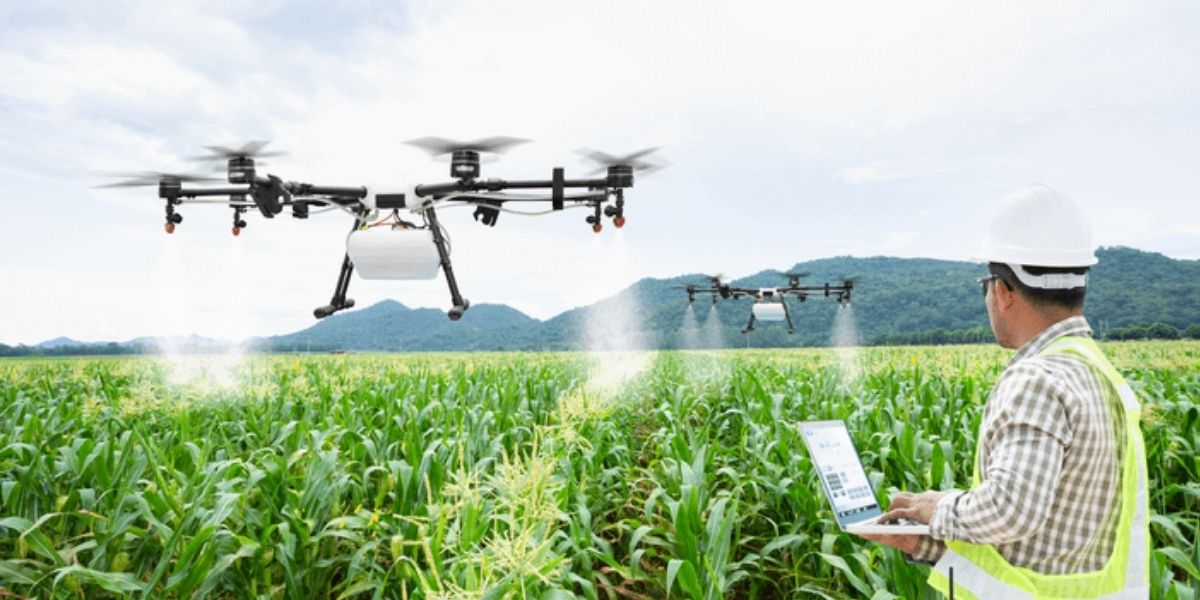When it comes to agricultural research, MASCIR walks on the two legs of sustainability and profitability. Our first concern is to reduce agriculture’s carbon footprint. Our second concern is the profitability of our tools and applications, which are all geared towards precision agriculture. So I’m going to introduce the results of our research in two of our areas of excellence: biostimulants and biofertilisers, and intelligent soil and plant analysis systems.
For more than ten years, we have been interested in the world of marine microalgae, their cultivation, development and various applications. Biostimulants and biofertilisers – which are free from chemicals – play a vital role in strengthening plants’ natural defence and growth systems, while respecting the environment.
We have obtained exceptional results in terms of yields from different crops using marine microalgae. At MASCIR, we have the first algae library. It contains almost 200 strains that have been collected from all over the Moroccan coastline.
We created a start-up called Tecalga specialising in the production and marketing of biostimulants and biofertilisers derived from marine microalgae. We’re the only company in this market today. We could imagine a CE label for our products and export them to Africa and other continents. Our biofertilisers do not compete with phosphate fertilisers, they complement them.

Natural Resources Valorization Laboratory of the MAScIR Foundation
Intelligent analysis devices
Second aspect of our work concerns reducing the carbon footprint of agriculture. Firstly, we are already making less use of the large machines, tractors and other equipment that are widely used in the fields. Following the example of biostimulants and microalgae, we are moving towards the infinitely small, including, for example, intelligent electronic devices controlled by artificial intelligence. We have a microelectronics team that is interested in everything to do with digitalisation and smart devices. It has acquired considerable expertise in near-infrared spectroscopy
This technique makes it possible to carry out analyses in real time without using consumables or reagents. It’s a scientific feat. Not only are we no longer in a logic in which the sample moves to the laboratory, but in the opposite logic.
It’s a device that travels to the field to carry out instant analysis and provide farmers with recommendations. It’s a tool that allows them to make informed decisions on the spot. Let me give you two examples.
The first is a soil analyser that instantly measures organic matter and NPK. The second is a device for analysing olive oil, providing instant information on its acidity, conjugated dienes, and possible adulteration . This device tells us whether the olive oil has been mixed with another liquid without the need for any consumables or reagents.
We are in the age of miniaturisation. Analysers are connected, portable devices that enable analysis to be carried out in the field and provide instant results. They enable farmers to be more reactive and adapt the right doses of inputs, including fertilisers, with precision.
Generally speaking, we are applying the results of the work carried out by our medical biotechnology team – which has developed molecular diagnostic kits for diseases prevalent in Morocco and Africa – to viral diseases affecting plants.
For example, we have developed a kit for detecting virus theToBRFV which ravages tomato and pepper seeds. It is currently being validated by the ONSSA (Office National de Sécurité Sanitaire des Produits Alimentaires). This kit will enable us to diagnose the disease at an early stage and thus help the seeds of these plants to overcome it effectively.
La MASCIR
MASCIR, or Moroccan Foundation for Advanced Science Innovation and Research, is a not-for-profit foundation set up in 2007. It is a multidisciplinary R&D centre now associated with UM6P, specialising in applied and applicable research to meet the needs of industry and the national and continental economy.
The initial focus was on the major technology clusters of microelectronics, biotechnology, materials and nanomaterials, optics and photonics and life sciences. Today, after 17 years of existence, MASCIR can be defined as a pool of skills, different areas of expertise and, what we call in our jargon, technological building blocks likely address different sectors of activity. For example, MASCIR is interested in health, renewable energies and mining. It works extensively with the OCP Group in the fields of sustainable development, the circular economy and agriculture.
Here are a few figures to give you an idea of the scope of our activities:
- 200 employees
- 700 scientific publications
- 190 licences
- 10 start-up partners
From the outset, MASCIR’s mission has been to carry out R&D that is useful to economic operators and to forge industrial partnerships. We give companies access to tailor-made R&D when they come to us with a very precise set of specifications. It is then up to us to draw on the technical and scientific skills of our staff and our state-of-the-art technology platform and equipment to develop innovative solutions that meet their specific needs, in return for payment of course. Finally, most important aspect concerns intellectual property. This can either be shared, in which case it gives rise to co-development, or it can revert to the customer or MASCIR alone
We are working hard to support Moroccan agriculture. Agriculture is essential to Morocco’s economy, employing 40% of the workforce and contributing 15-20% to the GDP. Unfortunately, agriculture is predominantly rain-fed, with 87% of the utilised agricultural area irrigated, compared with 13%. This handicap is exacerbated by poor weather conditions. To give an idea of the water stress from which Moroccan agriculture is suffering, we need only point out that it is in its sixth year of drought. The challenge is immense.




